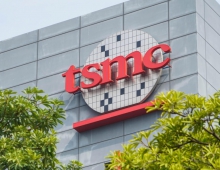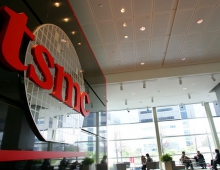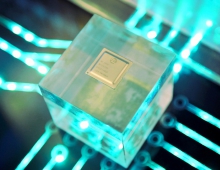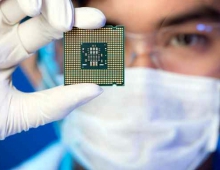
Renesas and TSMC Collaborate On 40nm Microcontrollers
Renesas Electronics Corp said it aims to start shipments
of 40nm microcontrollers during the business year
starting in April 2014, by outsourcing more production
to Taiwan Semiconductor Manufacturing Co, (TSMC.)
Renesas and TSMC have signed an agreement to extend
their microcontroller (MCU) technology collaboration to
40 nanometer (nm) embedded flash (eFlash) process
technology for manufacturing MCU products used in
next-generation automotive and consumer applications
such as home appliances.
At 40nm process, MCU products could achieve higher speed, lower power consumption and more than 50 percent smaller die size compared to the current 90nm node.
Renesas previously agreed to outsource MCUs to TSMC using 90nm eFlash process technology. Under the 40nm MCU collaboration, Renesas will outsource MCU production at 40nm and future technologies. Shipments of 90nm microcontrollers are expected to start by next April.
The Japanese firm, struggling with high costs and mounting losses, said it expects to produce about 30 percent of its chips overseas by 2016/17, double the 15 percent in the year ended in March.
Renesas and TSMC will collaborate to lead in technologies for MCU platform and production by combining Renesas' MONOS (Metal-Oxide-Nitride-Oxide-Silicon) technology. MONOS is a structure in which each transistor in the flash cell consists of three layers - oxide, nitride, and oxide - on a silicon base, with a metal control gate at the top. Based on the track record in MONOS technology, Renesas hasextended the technology by developing a split-gate (SG) structure suitable for MCU internal flash memory. The new "SG-MONOS" - type flash memory realizes MCUs with high speed and low power consumption.
"In order for us to achieve further global growth, we are confident that TSMC will provide us with significant benefits in accelerated time-to-volume production and maximum flexibility in addressing the volatile fluctuation of the market demand," said Shinichi Iwamoto, Senior Vice President of Renesas Electronics Corporation. "Based on what we have learned from the Great East Japan Earthquake last year, which brought major impacts to several of our manufacturing sites and our customers businesses, we have been accelerating the construction of the "fab network" as part of the company's business continuity plan (BCP). By integrating both companies' world-leading technologies through this collaboration, we will construct a supply structure which secures consistent supply for our customers and also drive the market as a leading MCU supplier aiming to set up an ecosystem for MCUs."
"Renesas is one of the leaders in the MCU market and the collaboration will help deliver the performance Renesas needs for new production introduction with the level of quality and reliability its customers have come to expect," said Jason Chen, Senior Vice President of Worldwide Sales and Marketing at TSMC.
Shares in Renesas Electronics fell more than 11 percent on Monday after news it will sell loss-making operations and cut at least 12,000 jobs.
The Nikkei business daily also reported that Renesas's restructuring plan, which the company aims to finalize by July, calls in addition for selling TSMC its Tsuruoka plant in Yamagata Prefecture. Renesas' Tsuruoka plant incorporates some of the most advanced technology held by the Japanese company in the manufacturing of system LSI chips used in flat-screen TVs and computers. The plant occupies more than 1,300 workers.
"The reports were not based on Renesas' announcement and they cannot be confirmed or regarded as fact at this time," Renesas said in a statement.
At 40nm process, MCU products could achieve higher speed, lower power consumption and more than 50 percent smaller die size compared to the current 90nm node.
Renesas previously agreed to outsource MCUs to TSMC using 90nm eFlash process technology. Under the 40nm MCU collaboration, Renesas will outsource MCU production at 40nm and future technologies. Shipments of 90nm microcontrollers are expected to start by next April.
The Japanese firm, struggling with high costs and mounting losses, said it expects to produce about 30 percent of its chips overseas by 2016/17, double the 15 percent in the year ended in March.
Renesas and TSMC will collaborate to lead in technologies for MCU platform and production by combining Renesas' MONOS (Metal-Oxide-Nitride-Oxide-Silicon) technology. MONOS is a structure in which each transistor in the flash cell consists of three layers - oxide, nitride, and oxide - on a silicon base, with a metal control gate at the top. Based on the track record in MONOS technology, Renesas hasextended the technology by developing a split-gate (SG) structure suitable for MCU internal flash memory. The new "SG-MONOS" - type flash memory realizes MCUs with high speed and low power consumption.
"In order for us to achieve further global growth, we are confident that TSMC will provide us with significant benefits in accelerated time-to-volume production and maximum flexibility in addressing the volatile fluctuation of the market demand," said Shinichi Iwamoto, Senior Vice President of Renesas Electronics Corporation. "Based on what we have learned from the Great East Japan Earthquake last year, which brought major impacts to several of our manufacturing sites and our customers businesses, we have been accelerating the construction of the "fab network" as part of the company's business continuity plan (BCP). By integrating both companies' world-leading technologies through this collaboration, we will construct a supply structure which secures consistent supply for our customers and also drive the market as a leading MCU supplier aiming to set up an ecosystem for MCUs."
"Renesas is one of the leaders in the MCU market and the collaboration will help deliver the performance Renesas needs for new production introduction with the level of quality and reliability its customers have come to expect," said Jason Chen, Senior Vice President of Worldwide Sales and Marketing at TSMC.
Shares in Renesas Electronics fell more than 11 percent on Monday after news it will sell loss-making operations and cut at least 12,000 jobs.
The Nikkei business daily also reported that Renesas's restructuring plan, which the company aims to finalize by July, calls in addition for selling TSMC its Tsuruoka plant in Yamagata Prefecture. Renesas' Tsuruoka plant incorporates some of the most advanced technology held by the Japanese company in the manufacturing of system LSI chips used in flat-screen TVs and computers. The plant occupies more than 1,300 workers.
"The reports were not based on Renesas' announcement and they cannot be confirmed or regarded as fact at this time," Renesas said in a statement.





















